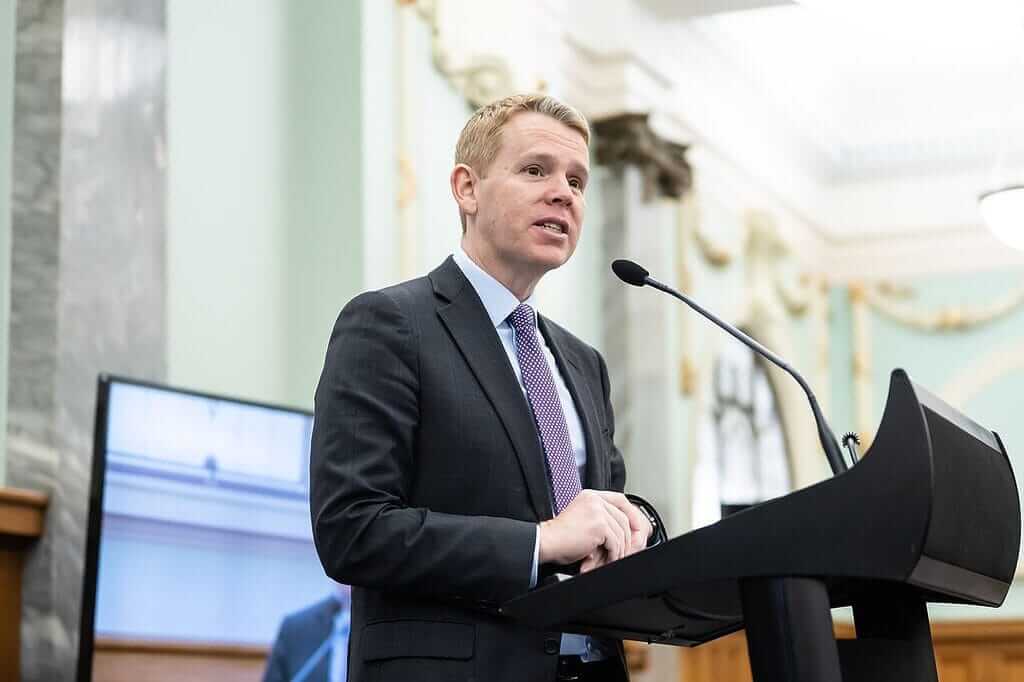In brief
- Ardern was adept at spinning narratives. Hipkins is no slouch himself.
- Hipkins’ about-face on several key Labour policies is presented in some media as a brave, strategic retreat. But is it a Trojan horse?
- Hipkins muses about rebranding co-governance, which is an insult to the intelligence of voters.
The master and the student
Former Prime Minister Jacinda Ardern’s degree is in communications. Unsurprisingly, Labour has spent almost a billion dollars a year of public money on spinning narratives. Maybe if Hipkins dialled that back he might be more believable.
A compliant media that overwhelmingly leans left has further helped Labour immensely. The pile-on of Auckland mayor Wayne Brown over his perceived inadequacy in emergency response compared with the hall pass Hipkins and the central Government received from the media is a case in point. Wayne Brown has since sought new communications staffers to help with messaging.
Furthermore, Hipkins, who despite five years of relentlessly pushing Labour’s agenda, is feted as a brilliant political strategist for the “policy bonfire” and subsequent policy vacuum the Party’s plummeting polls forced him into. Labour’s messaging post-Ardern is that they’re refocusing on ‘bread and butter’ issues. There’s hardly any mention of the new PM’s role, particularly in the last three years, of pushing distinctly non bread and butter issues. Namely, co-governance, vaccine mandates, a disastrous education reset, chronic labour shortages, soft on crime policies, etc.
In contrast, National’s Chris Luxon is pictured as flat-footed and ineffective, but wasn’t he a big part of the opposition that caused Ardern to exit?
But that’s comms for you.
Co-governance rebranded
Although the PM has yet to announce how co-governance will be handled as it relates to Three Waters, Hipkins argues the problem is not co-governance itself, but rather that co-governance is misunderstood by the public. Perhaps instead, those who have taken the time to educate themselves on Three Waters and co-governance are deeply unimpressed with: blatantly misleading statements by ministers; assigning powers over water assets based on ethnicity; removing any elected accountability; etc.
As a result, Hipkins is reportedly considering rebranding co-governance as ‘mahi tahi’ (partnership) at the behest of the Iwi Chairs Forum. Graham Adams argues that is tone deaf as much of the public is fed up with Māori labels they don’t understand sprinkled liberally into government.
It’s game on
The question is, if Hipkins is granted a mandate in the next election, what might he do? Is Labour’s supposed refocus just superficial? Is the public to believe that Labour is sincere about changing course, when virtually the same players seemed completely committed to an extreme agenda that saw Labour and Ardern falling in the polls, only weeks prior? In support of Hipkins, he deserves credit for acknowledging that regardless of whether a particular policy might be attractive in isolation, Labour was trying to do too much too fast.
On the same note, National is forced to reassess its “small target” strategy that has allowed the Party to say little on what policies they may introduce, other than reversing many of Labour’s bold moves. The strategy of letting Labour self immolate is now less viable.



















